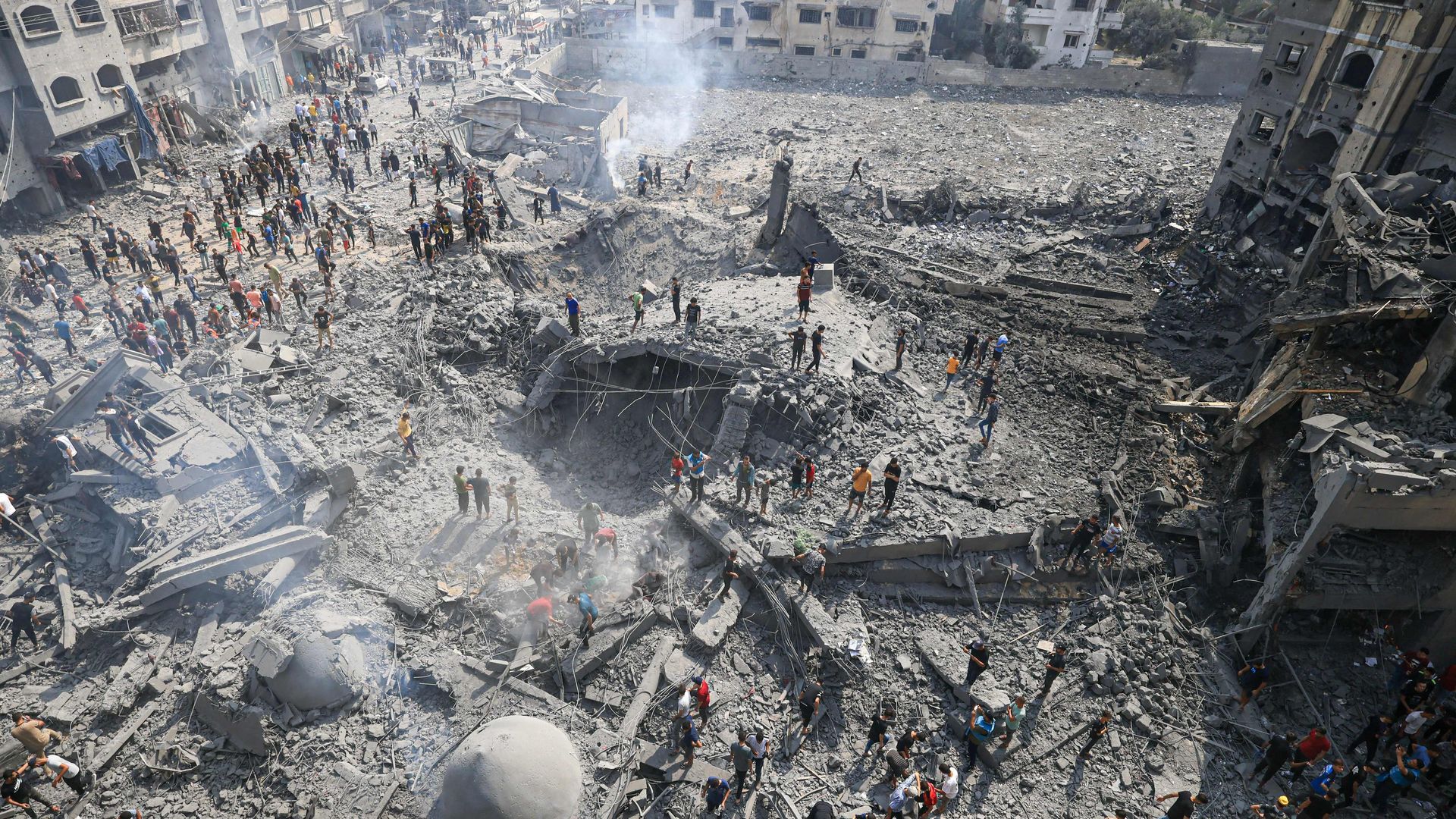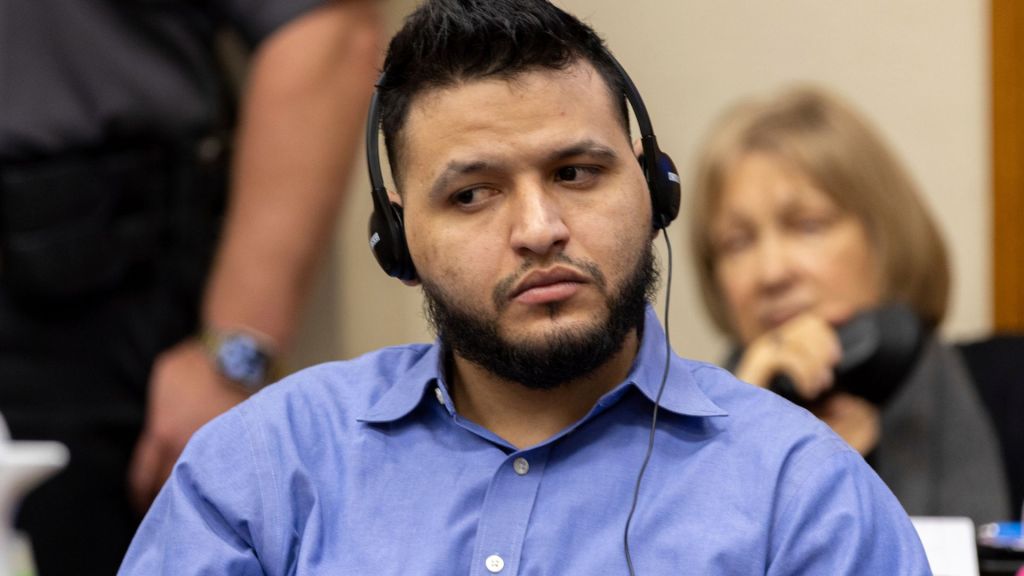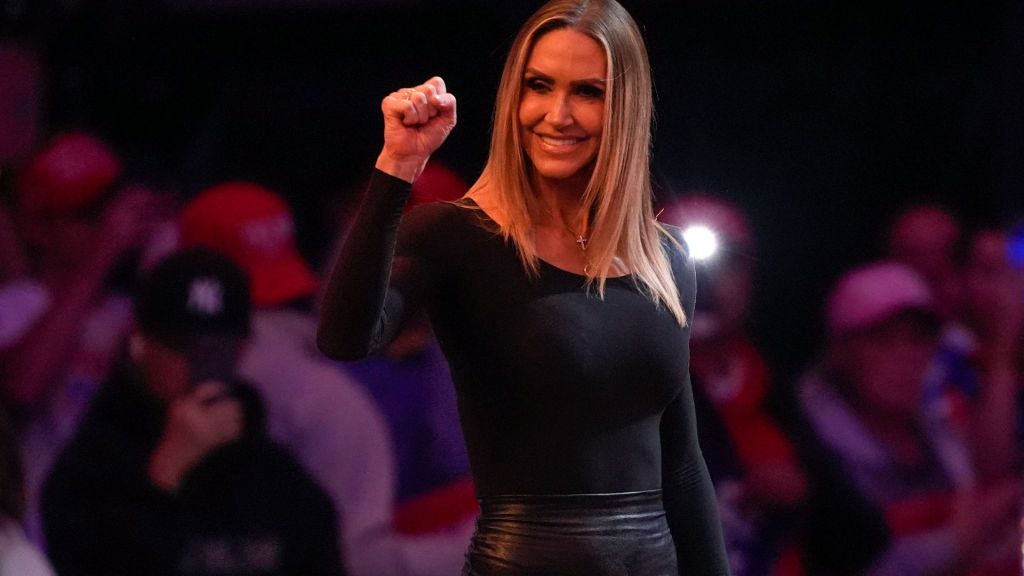
The war in Israel has weighed heavily on Americans since news broke Saturday that Hamas attacked Israel. The developments stunned viewers worldwide, who watched video after video of innocent civilians killed in the crossfire.

Download the SAN app today to stay up-to-date with Unbiased. Straight Facts™.
Point phone camera here
Thousands of lives have been lost in the bloodshed, and at least 150 people have been taken hostage. Media outlets have shared personal stories of victims’ families–stories of pain and suffering that remind Americans of the human element behind the body count.
“We found Emily, she’s dead,” Thomas Hand recalled, describing the moment he found out his 8-year-old daughter was found killed by Hamas. “I went, ‘Yes,’ and I smiled, because that is the best of the possibilities that I knew. She was either dead or in Gaza, and if you know anything about what they do to people in Gaza, that is worse than death. That is worse than death.”
“She is so gorgeous, she’s so beautiful, and so full of life,” Meirav Leshem Gonen said of her daughter, who was taken by Hamas and is still unaccounted for. “She was talking to me, saying ‘Mommy help us, we don’t know what to do,’ and I’m on the phone with her, ‘Call me, I love you, it’s okay we’re trying to find a plan, a way to take you out of there, we are sending people,’ and I know I’m lying because I don’t have answers, and we didn’t have any answers.”
“I want to close my eyes and go back to Friday, you know, [pretend] that this was all a nightmare,” Yifat Zailer said after learning six of her family members were taken by Hamas and are still unaccounted for. “There’s a nine-months baby, three-year child, and my aunt has Parkinson’s Disease. I don’t know if the baby was fed. I don’t know if he got his diaper. He doesn’t eat much normal food. He needs his formula still.”
A mother who wanted to remain unnamed described her last phone call with her two sons taken by Hamas: “I could hear two or three people speaking Arabic and getting in, and my youngest, who is only 12, saying, ‘Don’t take me, I am too young,’ and that was it…I want these children and women and babies back home and I want my children back home. I want them to fight each other, annoy each other, get on my nerves again. I want them back.”
A time of tragedy tends to bring people together. But the Israeli-Palestinian conflict is a long and complicated one, and there is a growing sense of division in America. The social media landscape is demanding that everyone pick one side or the other, making Americans feel as if they must either be pro-Israeli or pro-Palestinian. There are calls for cease-fires or calls for more blood. Some condemn the attacks, and others refraining from doing so.
While there are two sides on many fronts, there is at least bipartisan agreement that America should deter Iran’s involvement, and the involvement of proxy organizations the Iranian regime supports, to prevent any further escalation into a regional war.
There is enough suspicion over the regime’s hand in helping Hamas that Republicans and a growing number of Democrats want to refreeze the $6 billion in Iranian assets that were made available as part of a U.S. prisoner exchange. The Biden administration has signaled that not one dollar of that money has gone to Iran. Critics argue that the money could have emboldened Iran and its Middle Eastern allies, including Hamas.
President Biden told Iran on Wednesday to be “very careful” and warned other nations hostile to Israel not to intervene. America is sending help and aid to Israel. And on Thursday, Secretary of State Antony Blinken said the U.S. is working to find the hostages taken by Hamas.







